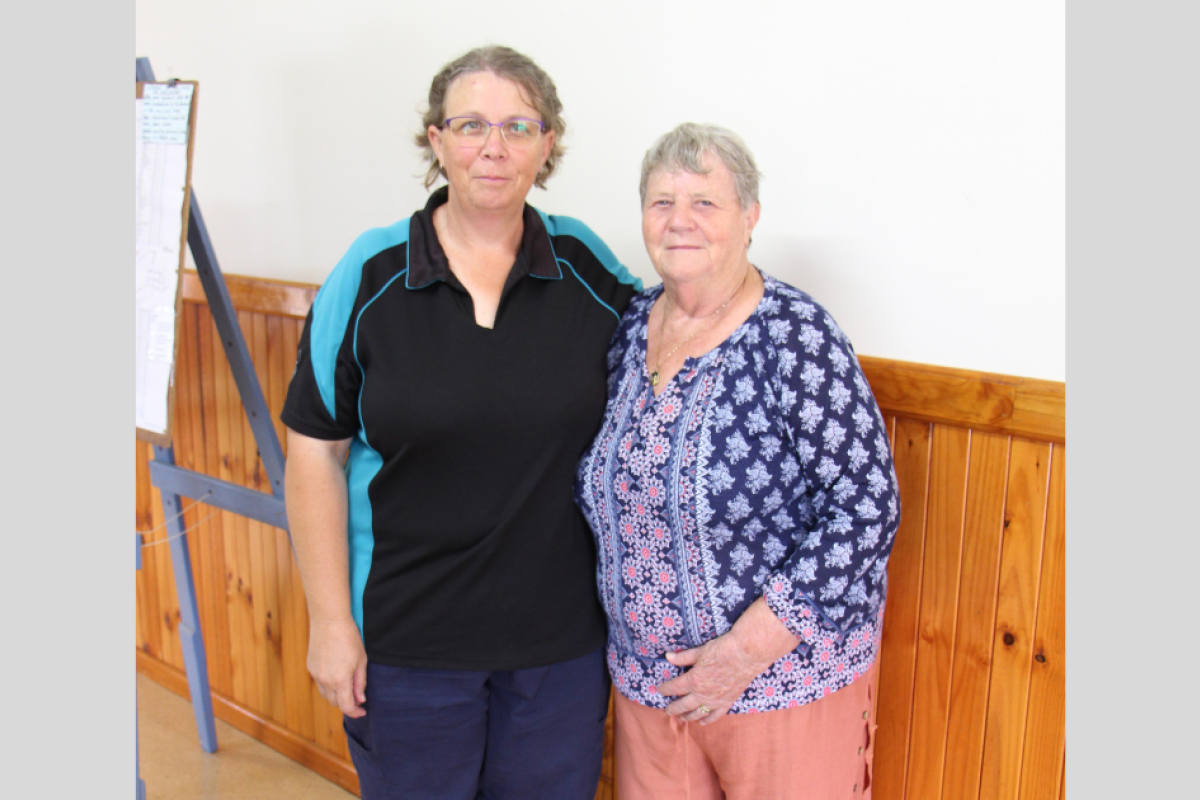General News
12 March, 2025
2025 Senior Citizen of the Year
“I'm in absolute shock,” said Heather as she accepted the award for 2025 Senior Citizen of the Year.

“The main thing that I think is my achievement for my life, is the Pink Disease support group for the which was called the official name is, infantile acrodynia, which means painful extremities.
“The reason why it was called Pink Disease is because a symptom of mercury poisoning is that your hands and feet turn bright pink, and the skin peels off almost to the bone.”
Heather was one of 19 babies in Eildon, Victoria, who contracted the disease after exposure to then-common teething powders. These powers, which were readily available, contained up to 23 per cent mercury. Of the 19 babies known to contract Pink Disease in Eildon, Heather was the only one who survived – the other died from convulsions and pneumonia. Heather said she still has breathing difficulties from the disease.
In the late 1980s, Heather wrote a letter to New Idea magazine, asking if there's any other people with Pink Disease out there because she’d never come across another survivor, until then.
“I immediately got over 3000 letters from the post office. I used to open the [post office] box and the letters would literally fall out. From that, I have had contact with people from all around the world.” Through the group, Heather has supported Pink Disease sufferers such as John Travolta’s late son, Jett (who died in 2009), and Crown Princess Victoria of Sweden, who contracted the disease from fish. She has also appeared in an American documentary by journalist David Kirby on the subject on mercury in vaccines.
This documentary is available on to view online, and Heather said she is thrilled that people can just browse the internet and educate themselves on what is not a widely known disease.
She said education helps to explain to people that “there’s a reason why they do the silly things I do”.
Heather went on to describe how she can be challenged by everyday activities or tasks because of the damage caused to her brain by the disease – such as momentary mental delays and mixing up horse feeds. Heather’s support group and wider advocacy, led to mercury being eliminated from infant vaccines.
“These are my things that I’m very, very proud off,” said Heather.
“I'm not being silly by boasting about them, because they are helping [people]. A lot of the symptoms of mercury poisoning are similar to autism [seizures, etc].”
“I am just absolutely shocked and amazed that I've been given this award, and I take it on board for all the other Pink Disease people, and all the other people that have helped me along the way.
“And I thank you for your support and help because many faces here, have encouraged me over the years. So, thank you very much,” she concluded.


